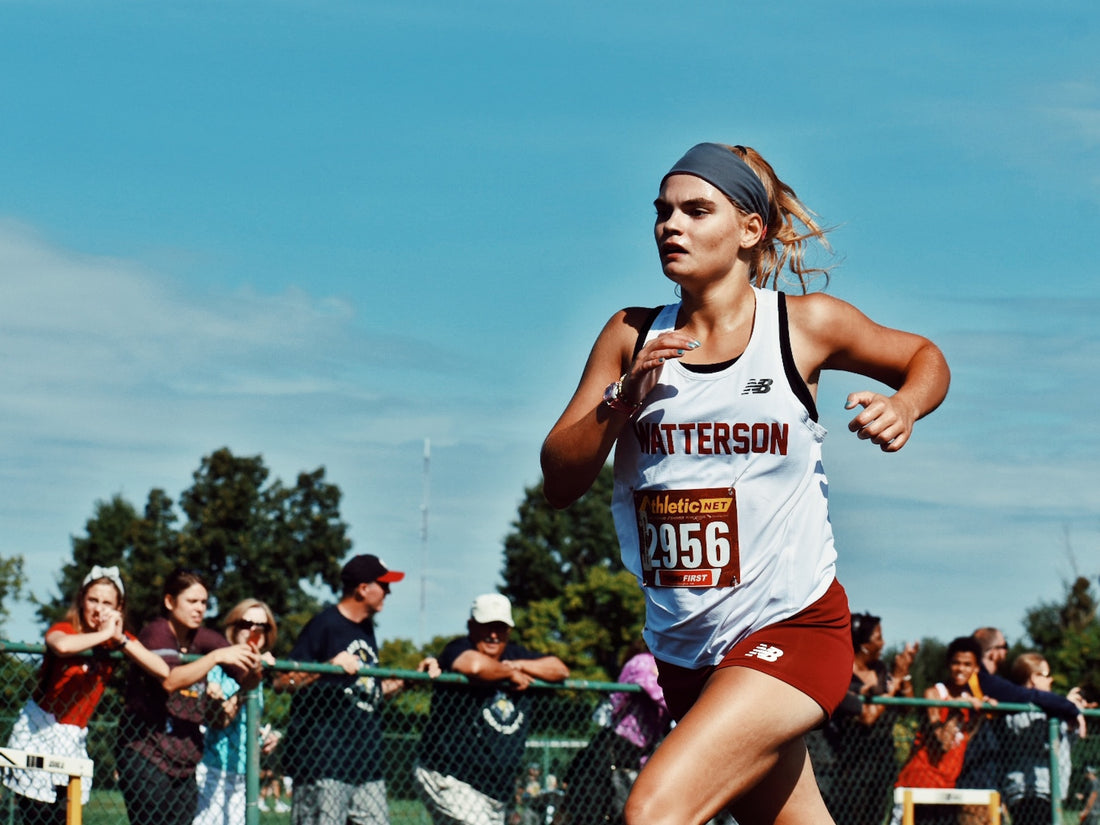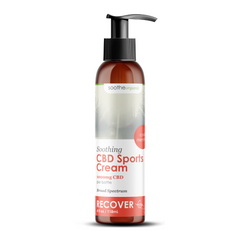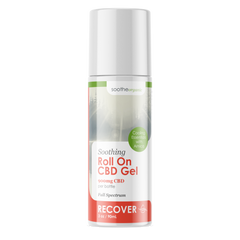Are you tired of being held back by the discomfort and pain of a runner's knee? It's time to break free from the limitations this common ailment can impose on your active lifestyle. You deserve to run without fear, enjoy your daily jogs, and reach new personal milestones.
In this article, we'll explore four valuable tips to help prevent a runner's knee and empower you to reclaim control over your physical well-being by using CBD sports cream 1000mg muscle rub. Don't let runner's knee dictate how you live your life any longer. Arm yourself with the knowledge and tools necessary to keep those knees in tip-top shape to continue pursuing your athletic endeavors with renewed confidence and vigor.
Together, we'll delve into understanding what exactly causes a runner's knee, various treatment options available, and effective prevention strategies that will allow you to liberate yourself from this pesky condition for good. So lace up those running shoes and get ready to conquer the pavement – pain-free!
What Is Runner's Knee?
Have you ever wondered what causes that nagging pain in your knee while running? You might be dealing with a runner's knee, a common issue among runners.
Let's dive into understanding the causes of the runner's knee and how it's diagnosed so you can get back to pounding the pavement pain-free!
What Causes Runner's Knee?
It's heartbreaking to see passionate runners sidelined by that dreaded condition we call 'runner's knee.' To avoid being one of those unfortunate souls, it's essential to understand what causes this common ailment and how to prevent a runner's knee from occurring in the first place.

Runner's knee, or patellofemoral pain syndrome, is caused by cartilage irritation behind your kneecap or strain on the tendons around your knee due to excessive stress and poor biomechanics.
To help you keep on running without fear of developing a runner's knee, consider these four tips:
- Strengthen your hips and glutes: Weak muscles in these areas can lead to improper alignment and increased knee stress.
- Improve your running form: Proper form reduces the impact on your joints and helps distribute stress more evenly.
- Gradually increase mileage: Don't push yourself too hard too soon; allow your body time to adapt.
- Wear appropriate footwear: Shoes with proper support and cushioning can minimize the risk of injury.
By incorporating these strategies into your routine, you'll take a proactive approach to preventing the runner's knee.
The freedom of avoiding this painful condition will fuel your passion for running even further.
So go ahead – lace up those shoes, hit the pavement (or trail), and enjoy each stride, knowing you're doing everything you can to prevent a runner's knee from holding you back.
How Do You Diagnose Runner's Knee?
So, you're determined to keep your knees in tip-top shape, but how do you diagnose a runner's knee if symptoms arise?
First things first: don't panic! Runner's knee is a common issue; with the right approach, you'll be back on track in no time.
Before diving into healing a runner's knee or searching for ways to cure it, getting a proper diagnosis is essential. This might involve differentiating between the runner's knee vs the jumper's knee or other related issues.
To start, consult a healthcare professional who can evaluate your symptoms and recommend the best action. During your appointment, expect a thorough examination of your knee and potentially some imaging tests (such as an X-ray or MRI) to accurately determine the cause of your pain.
Remember that icing a runner's knee may provide temporary relief while waiting for professionals' proper diagnosis and treatment advice. Once diagnosed correctly, you can confidently work towards recovery by following expert guidance on preventing a runner's knee in the future.
Embrace this journey as an opportunity for personal growth and discovery – after all, overcoming challenges makes us stronger and more resilient individuals!
Prevent Runner's Knee
Ready to prevent runner's knee and keep your joints pain-free? Here are four essential tips to incorporate into your routine:
- Focus on staying hydrated.
- Strengthen your muscles.
- Warm up properly.
- Watch your form while you hit the pavement.
By following these tips, you'll be well on your way to enjoying a healthier running experience.
Stay Hydrated
Staying adequately hydrated is crucial for maintaining healthy joints and avoiding pesky runner's knee, so don't skimp on the H2O! When sufficiently hydrated, your body can efficiently deliver nutrients to your muscles and joints, helping them stay strong and flexible. Plus, water acts as a lubricant for your joints, reducing friction and minimizing the risk of injury.
To further support your hydration efforts and joint health, consider incorporating CBD for runners into your routine. With its anti-inflammatory properties, CBD may help alleviate discomfort from minor aches and pains associated with running.

Now that you know how important it is to stay hydrated, ensure you're sipping water throughout the day – not just during or after your workout sessions. Please keep track of your fluid intake by carrying a reusable water bottle with measurements marked on it.
Remember that even if you don't feel thirsty during or after exercise, it doesn't mean you're well-hydrated; thirst can be an unreliable indicator of dehydration. For an added energy boost while ensuring proper hydration, try our tropical-flavored CBD Energy Drink containing 25mg broad spectrum CBD and 75mg caffeine per scoop – perfect for those seeking a kick-start without the jitters!
Strengthen Your Muscles
Building powerful muscles enhances your running performance and creates a solid foundation to protect your joints from the wear and tear of pounding the pavement. Strengthening key muscle groups like your quadriceps, hamstrings, and calves will support your knees and help distribute the impact forces generated during each stride.
Challenge yourself to incorporate targeted strength training exercises into your routine at least twice weekly. Think squats, lunges, calf raises, and leg curls. As you build muscle mass in these areas, you'll notice increased stability in your joints and a newfound sense of freedom as you glide effortlessly through each run.
Remember the smaller stabilizing muscles surrounding your knee joint, too. They play a crucial role in keeping everything aligned and working smoothly. Exercises focusing on hip abductors (like side leg lifts) and gluteus medius (like clamshells) will promote better overall biomechanics when you run.
Additionally, maintaining a strong core can improve posture while running, which helps prevent excess strain on the knees. So set yourself free from runner's knee by embracing the power of strength training! You'll be amazed at how liberating it feels to run without pain or limitations holding you back.
Warm Up Properly and Watch Your Form
Don't underestimate the importance of warming up and maintaining proper form during your runs – it's essential for keeping your knees happy and healthy. Warming up increases blood flow to your muscles, preparing them for the work ahead and reducing the risk of injury.
Start with dynamic stretches that target key muscle groups, such as leg swings, hip circles, and ankle rolls. Follow this with a few minutes of light jogging or brisk walking before ramping up to your desired pace. This gradual process allows you to tune in with your body, ensuring a smoother transition into more intense activity.

Regarding form, think about freedom – running with correct posture prevents the runner's knee and helps liberate you from future injuries. Keep your head lifted, gaze forward, and avoid hunching over, as this can strain the neck and shoulders while placing undue stress on your knees.
Lean slightly forward at the hips while engaging your core muscles for stability, allowing you to maintain an upright position without excess tension in any area. Land on the midfoot rather than striking down hard on your heels; this reduces the impact on joints throughout each stride.
Remember: embracing proper form is like unlocking shackles that have held you back – enjoy the newfound ease as you glide across pavement or trails!
Treatment Options
Exploring various treatment options when dealing with a runner's knee is essential, as finding the right one can make a difference in your recovery journey. Feel free to try different methods and consult with professionals to find what works best for you.
Some popular treatments include physical therapy, which focuses on strengthening the muscles around your knee and improving flexibility; over-the-counter anti-inflammatory medications like ibuprofen to help reduce swelling and pain; ice packs or cold therapy to alleviate inflammation; and kinesiology tape or knee braces for added support.
Another powerful tool in your arsenal is rest – sometimes, your body needs a break from repetitive stress. While it may be challenging for dedicated runners to take time off, remember that healing now will lead to a more robust performance later. Listen to your body and gradually reintroduce running once you're pain-free.
Additionally, consider alternative exercises like swimming, cycling, or yoga during the healing process – these low-impact activities can keep you active without exacerbating your runner's knee symptoms. Ultimately, taking charge of your treatment plan will set you free on the path back to painless running!
Prevention Tips
Now that we've discussed treatment options, let's focus on something even more critical: prevention. Nobody wants to experience the pain and frustration of a runner's knee, so taking steps to prevent it is vital. As they say, an ounce of prevention is worth a pound of cure!
We have four essential tips to help keep your knees healthy and pain-free while you enjoy the liberating sensation of running. These preventive measures will not only protect your knees but also enhance your overall running experience:
- Strengthen those muscles: A robust support system around your knees prevents injuries. Focus on building strength in your quadriceps, hamstrings, calves, and hip muscles.
- Choose proper footwear: Find shoes that provide adequate support and cushioning for your feet. This will reduce the impact on your knees and promote better running form.
- Mix up your routine: Incorporate cross-training activities like swimming or cycling into your fitness regimen to give those knee joints a break from constant pounding while maintaining cardiovascular fitness.
By following these simple yet effective tips, you'll be well on your way to keeping the runner's knee at bay. Embrace this newfound knowledge and allow yourself to run freely without fear of injury!
CBD Disclaimer
You might be wondering about the role of CBD in managing a runner's knee, so let's dive into that topic and clear up any misconceptions.
CBD, or cannabidiol, is a compound found in cannabis plants that has gained significant attention for its potential therapeutic benefits. Some people have claimed that it can help with pain management and inflammation reduction, which could be helpful for those suffering from a runner's knee.
However, before you jump on the CBD bandwagon and incorporate it into your prevention routine, consider some necessary disclaimers.

Firstly, while there is anecdotal evidence supporting the use of CBD for pain relief and inflammation management, scientific research on its efficacy still needs to be explored. This means using CBD as a primary method to prevent a runner's knee may not be as effective as other proven strategies like proper footwear, strength training, and running technique adjustments.
Additionally, CBD products are not regulated by the FDA; thus, product quality can vary significantly between brands. Suppose you're keen on trying CBD to manage discomfort associated with a runner's knee or improve your overall well-being during training sessions. In that case, it's crucial to consult with a healthcare professional first to ensure its safe use in conjunction with your needs and circumstances.
Remember that prevention is always better than cure – focus on incorporating tried-and-true methods for avoiding a runner's knee so you can continue pursuing your passion for running without limitations!
Frequently Asked Questions
Can running on different types of terrain help prevent a runner's knee?
Absolutely! Running on different terrain can be a game-changer in keeping the runner's knee at bay. By mixing it up, you're challenging your body and giving your joints and muscles a break from the repetitive stress they endure on uniform surfaces.
So go ahead, free yourself from the monotony of pavement pounding! Embrace the softness of grassy fields, conquer those uneven trails in the woods, or even hit the sand for an extra challenge. As you explore these diverse landscapes, you'll strengthen your stabilizing muscles and improve your overall running form – a winning combination to keep those knees feeling liberated and pain-free.
Are there any specific running shoes or orthotics that can help reduce the risk of developing a runner's knee?
You bet there are! Finding the right running shoes or orthotics can make a difference in reducing your risk of developing a runner's knee.
It's all about providing proper support and cushioning for your feet as you pound the pavement. Look for shoes with ample arch support, shock absorption, and a comfortable fit to help distribute pressure evenly across your foot.
Don't hesitate to contact experts at specialty running stores or consult a podiatrist if needed – they can recommend specific shoe models or custom orthotics tailored just for you.
So liberate those knees from pain by investing in footwear that keeps them happy and healthy during every run!
How does a runner's weight and body composition impact the likelihood of experiencing a runner's knee?
Your weight and body composition significantly affect your likelihood of experiencing a runner's knee. Carrying extra pounds puts added stress on your knees, which can lead to pain and injury over time.
But don't worry – there's hope for you! By shedding some weight through a balanced diet and cross-training exercises, you'll reduce the pressure on those precious joints and improve your overall running performance.
So, embrace this chance to transform yourself into a leaner, stronger runner ready to conquer any trail life throws at them!
Are there alternative forms of exercise or cross-training activities recommended for those prone to a runner's knee?
Don't let runner's knee hold you back from staying active and feeling liberated! Embrace alternative exercises or cross-training activities that can help protect your knees while providing a great workout.
Consider low-impact options like swimming, cycling, or using an elliptical machine to give your joints some relief. Yoga and pilates are fantastic for building strength and flexibility without putting excess strain on your knees.
Remember, variety is the spice of life – so mix things up and discover new ways to stay fit while keeping your knees happy and healthy!
Can specific dietary changes or supplements help prevent or manage a runner's knee?
You may not realize it, but making some dietary changes or adding supplements can help prevent or manage the runner's knee. Fueling your body with anti-inflammatory foods like leafy greens, berries, and fatty fish can reduce inflammation and promote joint health.
Don't avoid adding certain supplements to your diet; consider taking glucosamine, chondroitin, or omega-3 fatty acids for improved joint function and reduced pain.
Remember, a healthy diet goes hand-in-hand with an active lifestyle – so make these small changes and free yourself from the constraints of a runner's knee!
Conclusion
In conclusion, don't let the runner's knee keep you from enjoying your runs. Following these prevention tips and seeking proper treatment can save your knees healthy and pain-free.
Always listen to your body and consult a healthcare professional if you're unsure about any symptoms or treatment options.
Happy running!
CBD energy drinks, CBD sleep apnea, MLB CBD, Best sleep gummies, THCV gummies, 750mg gummies, CBD sports cream, CBD cream 1000mg, Wyoming weed laws, CBG tincture, gummies for sleep, CBD softgels 25mg, delta 9 gummies, sleep gummies, CBD Wyoming, CBD store Casper, Focus gummies, THCv gummies effect, healing salve, best delta 9 gummies, sleep gummies for adults, vegan gummies, CBD softgels, best THCv gummies, full spectrum vs. broad-spectrum CBD, muscle rub, organic sleep gummies






